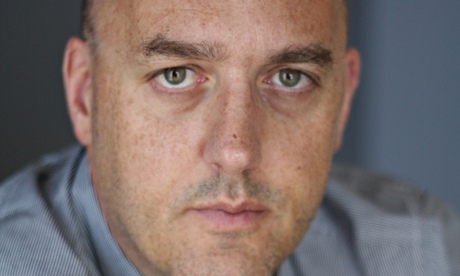
Known for his experimental pedigree, the opening stories in Leaving the Sea are uncharacteristically realist for American author Ben Marcus, as if placed there to lure in a reader with tamer taste. But already something is off-kilter. In the black, hook-topped towers that loom over the Cleveland skyline of "What Have You Done?", or the bizarre medical treatment the young man in "The Dark Art" receives, we see hints of the more sinister dystopias yet to be unleashed.
Neither experimentalism nor dystopianism have ever made for easy reading, but what makes these new stories compelling is the humanity at their centre. They explore the relationships we have with those we most long to protect – partners, children, parents. A son strives to ensure the safety of his parents during rehearsals for a city's post-cataclysmic evacuation; a single father struggles after his ex-wife dumps their asthmatic toddler on him; the narrator in the title story is disturbed to find a man has entered his home and taken his place, now lying in his bed, holding his sleeping wife in his arms.
Relationships lie also at the centre of Scottish author AL Kennedy's new collection, All the Rage. It's a very different book by a very different author, but one with just as distinct an authorial voice and no less of a human core. The book jacket promises "a dozen ways of looking at love". But if these are love stories, they are love stories with "certain types of threat and the odder edges of sweet things", love stories for grown-ups, mute warnings of what might or has already gone wrong. Love is coupled with loss, affection with an ability to inflict pain. Their meaning unfurls, like a secret gently revealed.
Pleasingly, we have to work out for ourselves what makes these characters tick. Often the explanation surprises. Kennedy dissects the small intimacies of inner thought and holds them palm-up, naked, there for our observation and evaluation. Her prose is typically direct, her sentences clear cut and yet capable of great tenderness.
You would be mistaken for assuming these collections to be relentlessly bleak. On the contrary, both authors are adept at putting their darker subject matter into relief with bright sparks of humour. Kennedy's Dorothy, for example, reflects that "unsolicited early [morning] conversations make her tetchy as a maiden aunt facing down a squirrel", while in the head of one of Marcus's characters exists a "mug-shots" gallery composed of the imagined sexual organs of everyone he sees.
Despite this reader-friendly injection of humour and humanity, Marcus's more obscure stories can still sometimes convey the aplomb of a precocious child who, bright-eyed and gleeful, knows they can confound their elders with their brilliance. If we puzzle over them long enough perhaps all will slot into place. Not everyone will have the patience. But sticking with them can reward with a worthy payoff, just as Kennedy's stories also do. Leaving the Sea's final scene, for example, left me sucker punched.
For Marcus, language has always been a chief preoccupation; something mercurial, often poisonous, his characters rarely finding it sufficient to convey the complexity of emotion. Kennedy's relationship with it seems more balanced. She has the ear of a poet and can turn a phrase beautifully. But language can also elude her characters, at which point they resort to the physical. "Okay, okay, okay," says the man in her final story, "repeating one word for no particular reason," and then he leans down unannounced and kisses his companion "with a pressure which is nearly an absence and therefore aches".
Assured in the brilliance of their prose, these authors know how to conclude with emotional resonance.

